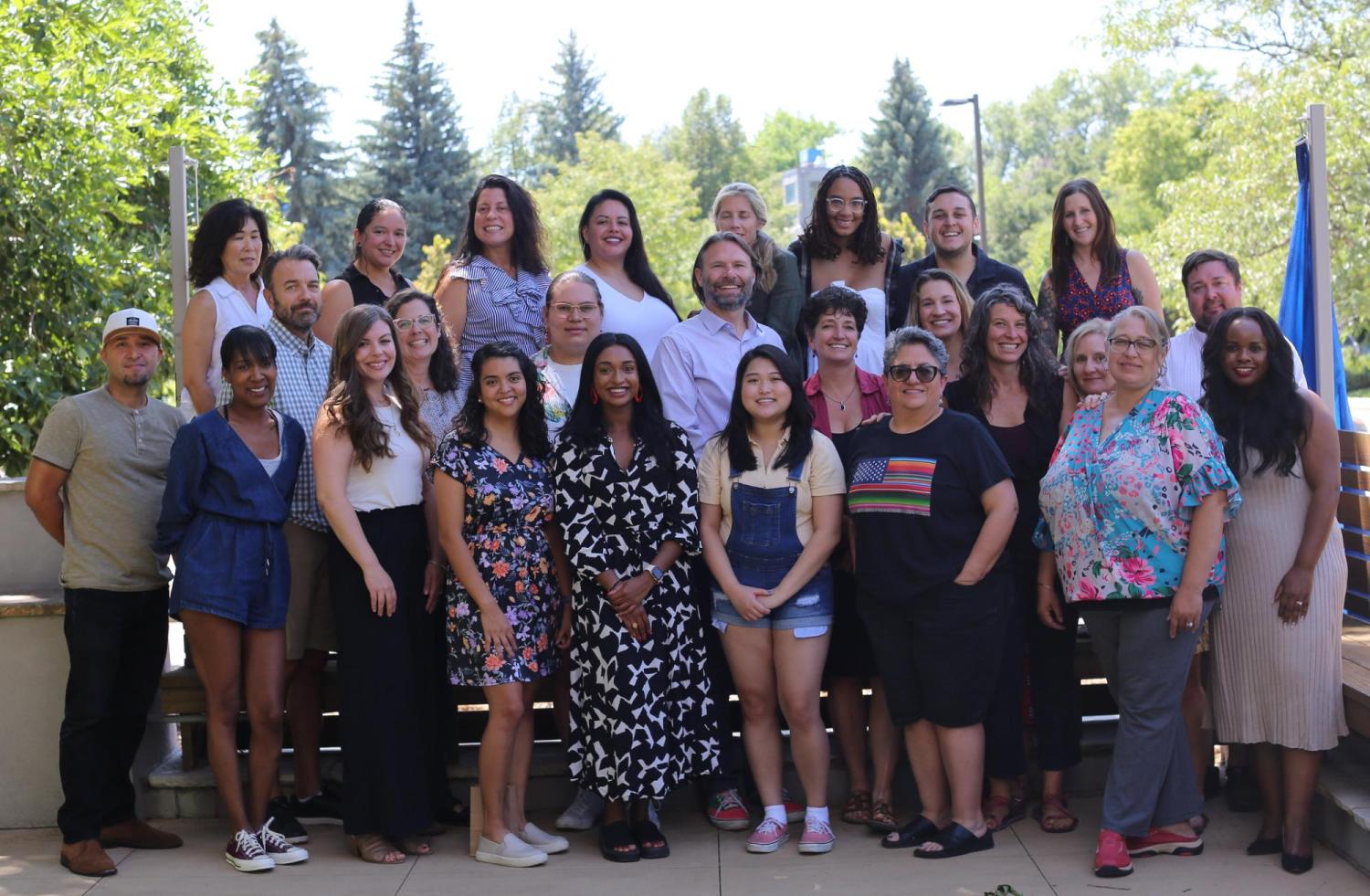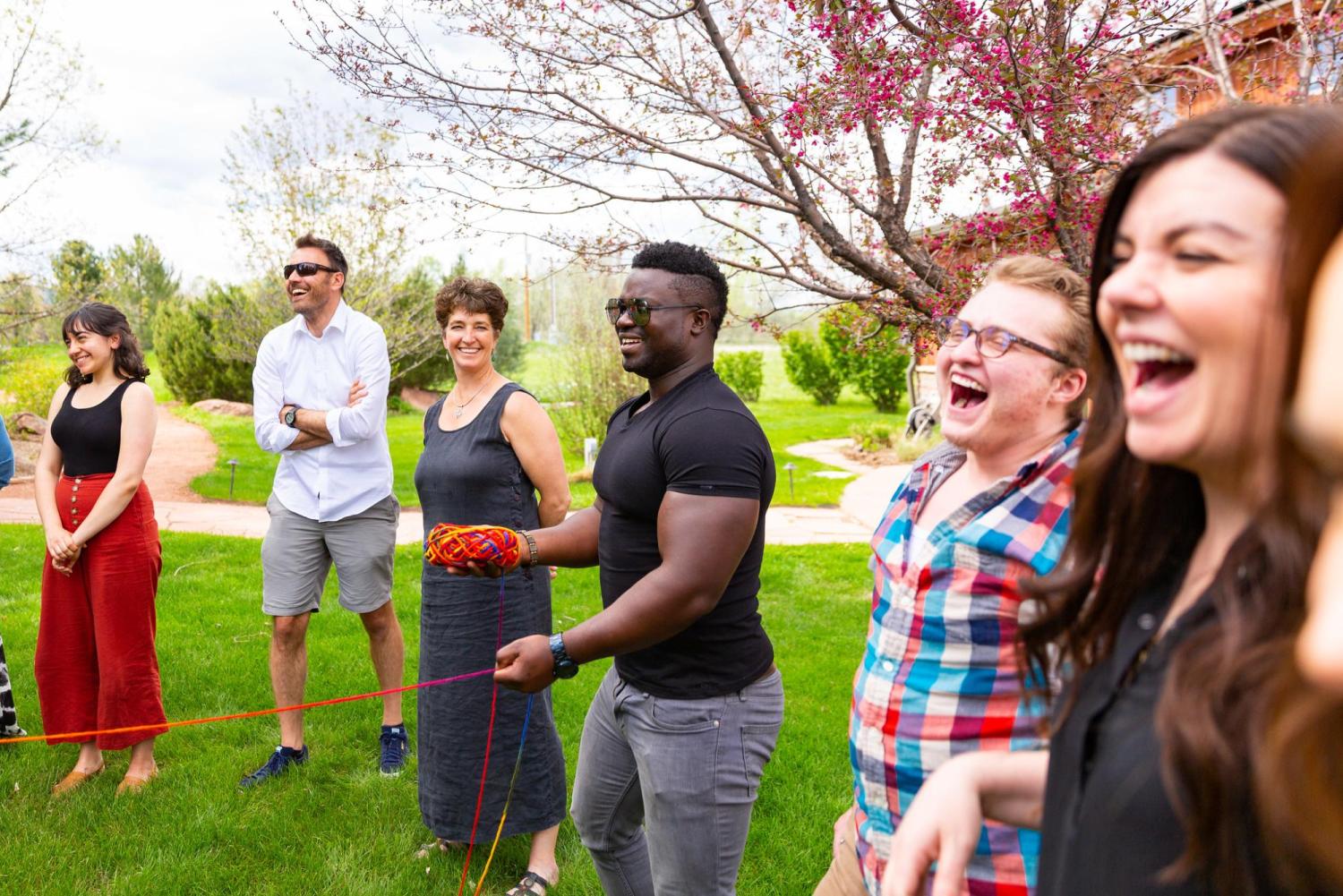CU Engage is the University of Colorado Boulder’s Center for Community-Based Learning and Research.
Launched in July 2014, CU Engage supports programs and initiatives that work collaboratively with community groups to address complex public challenges through academic courses, research projects, and creative work. We do this by developing and sustaining equity-oriented partnerships, organizing opportunities for students to learn alongside community members, and supporting faculty and students to implement ethical and rigorous engaged research.
CU Engage is based in the School of Education and serves the whole Boulder campus. It represents the Boulder campus' effort to coordinate and sustain its various community engagement efforts in one academic unit. This means that several longstanding, high quality CU programs are now part of CU Engage. Consistent with the priorities of CU’s Flagship 2030 Strategic Plan, CU Engage advances the academic mission of the university by fostering a culture of inquiry and experiential learning among students, raising the visibility, quality, and status of community-based research on the Boulder campus, and contributing to more inclusive practices for students, staff, and faculty.

CU Engage supports two focal activities: Community-Based Learning Pathways and Community-Based Research (CBR). These activities are linked through the formation of partnerships with community groups, public agencies, and schools. We utilize the definition of community engagement provided by the Carnegie Foundation for the Advancement of Teaching:
Community Engagement describes the collaboration between higher education institutions and their larger communities (local, national, global) for the mutually beneficial exchange of knowledge and resources in a context of partnership and reciprocity.
CU Engage’s approach to student learning prioritizes experience (learning by doing), reciprocity (work with rather than for communities), and intellectual rigor rooted in academic disciplines. Typically, learning opportunities for students draw on disciplinary expertise to meet a need identified by a community partner, such as for mentoring, youth empowerment, or environmental design. For example, students enrolled in an educational psychology course learn disciplinary content by working alongside youth in Boulder County after-school programs. Their experiences are structured through purposeful integration of theory and practice; students enact a repertoire of mentoring and tutoring skills while having opportunities to reflect on their actions and assumptions, which are assessed through regular feedback on student field notes.
Engaged learning opportunities also include the chance for students to do research that responds to a community need. Community-Based Research (CBR) emphasizes the rigorous pursuit of knowledge in the context of reciprocal university-community partnerships. CBR projects aspire to combine the resources and expertise located in communities with academic knowledge. Inquiry can be motivated by the effort to investigate or uncover the roots of a problem or to document and elevate hidden strengths. In both cases, the goal is to use research methods to inform a public issue or support community development.
CU Engage is separate from but closely allied with CU Boulder’s Office for Outreach and Engagement, which serves as another valuable resource for connecting research, teaching and creative work with public needs and interests. The Office for Outreach and Engagement supports a variety of outreach and engagement programs, initiatives and resources, while CU Engage is focused specifically on supporting community-based learning and research opportunities that align with our core values. To find out more about other campus-wide programs, visit the Public Outreach and Community Engagement website.
We invite you to contact us if you are interested in participating in, or supporting, CU Engage’s work in community-based learning and research.

Our Values
Equity & Inclusion:
Our programs emphasize inclusive practices that foster the intellectual and collaborative engagement of every person, regardless of national origin, age, race, ethnicity, religion, gender identity, gender expression, sexual orientation, ability, socioeconomic status, veteran status, or political affiliation. We adopt a “cultural wealth” perspective that recognizes and showcases the collective knowledge and resources of underserved communities.
Reciprocity:
We seek to build relationships with community partners that are mutually beneficial and collaborative (“doing with”), rather than exploitative (“doing to”) or paternalistic (“doing for”). Reciprocal relationships like this begin when both partners can articulate their self-interests and, over time, work together towards common goals. This working together acknowledges and respects different forms of culture, knowledge, expertise, and capacity.
Public impact:
We seek to contribute to projects that define the public in a broad, and inclusive way and strive to build, strengthen, or reclaim “public goods,” such as access to quality education, health and well-being, or clean environments. Our focus on public impact is consistent with CU-Boulder’s mission “to serve Colorado, the nation, and the world.”
Democracy:
For the purposes of CU Engage, denotes a broad set of practices in which people collectively engage the public world to bring about change. Democracy refers to a quality of participation that involves working with others, across differences, with full inclusion, towards common solutions.


